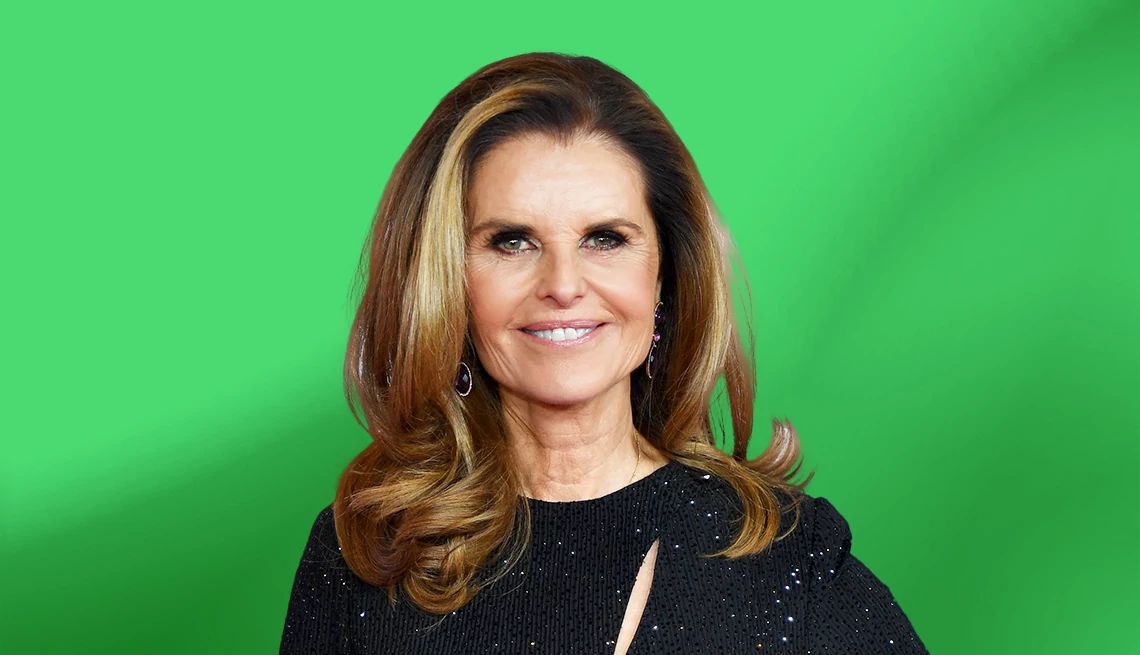
Maria shriver: ‘strive to be interesting’ | members only access
- Select a language for the TTS:
- UK English Female
- UK English Male
- US English Female
- US English Male
- Australian Female
- Australian Male
- Language selected: (auto detect) - EN
Play all audios:

Maria Shriver, 68, is on a mission. As founder of the Women’s Alzheimer’s Movement and a strategic adviser for the newly launched Cleveland Clinic Women’s Comprehensive Health and Research
Center, she is a passionate advocate for expanded research that specifically focuses on women’s health, and hopes her efforts make a marked change for future generations. “My hope is that
when my daughters and other people’s daughters are my age, that their experience at the doctor’s office is far more fact based than mine was,” Shriver says. AARP spoke to the journalist,
author, former First Lady of California and mother of four children with ex-husband Arnold Schwarzenegger about her pursuit to change the conversation around women’s health care. She also
shares her views on aging in the public spotlight, what she loves about being a grandmother and how she strives to be a supportive mother-in-law to her daughter Katherine’s husband, actor
Chris Pratt. _This_ _interview_ _has_ _been_ _edited_ _for_ _length_ _and_ _clarity._ What changes are you trying to make in terms of women’s health care? We need to have a broad,
comprehensive conversation about what does women’s health actually mean. I’m always trying to have the conversation that it’s bigger than reproductive health. It’s bigger than breast
cancer. It includes those things, but it’s far broader, and it’s far more comprehensive than the media writes it to be. I’m trying to broaden the conversation. I’m trying to make it more
inclusive. I’m trying to talk about the inequities that are in it and how to write that ... into [clinical] trials — understanding that chronic diseases happen in different communities in
different ways. People have different experiences with menopause or autoimmune disease or endometriosis or birth control, and [we need to make] room for that conversation. What do you think
women need to understand about midlife health issues? Most women in midlife, millions of them, already have at least one chronic disease. One of the things I wish I had done is paid more
attention in midlife, because whether it’s an autoimmune disease or whether it’s osteoporosis, all of these things begin in midlife or they get worse in midlife. So the best way to stay out
of the doctor’s office is to prioritize your health at every decade of your life. Women in their 40s, 50s, their 60s are talking about different health issues than women in their 20s and
30s. With increased research, ultimately, what would you like to see happen? I’d like for women to be able to know more about their health journeys. I would like them to be able to get more
facts when they go into the doctor’s office and be given facts and research to back it up, so that they’re not sitting there going: _Should I get off the hormone? Should I go on the hormone?
Should I take this drug? Should I not take that drug? Has it been tested on women? Has it not? What am I doing? How long should I do it? _That they would have more information, that they
would know the story of their health care better than they do now, because now there is no story for them to lean on.
